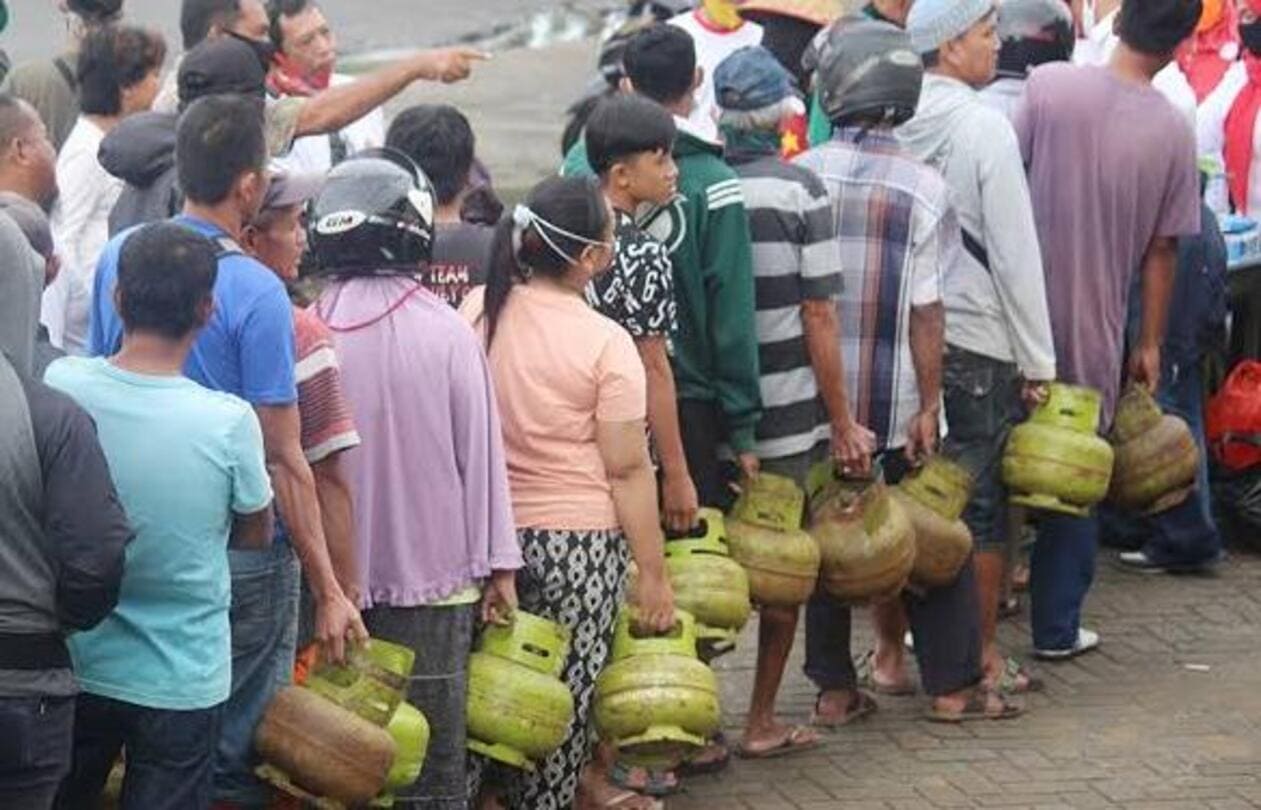Households and small businesses hit hard by 3-kilo LPG cylinder shortages
Introduced in 2007 to replace kerosene, the 3-kilo LPG cylinder was reserved for poor people starting in 2019. The Prabowo administration is forcing retailers to become agents of the state-owned energy company to prevent price gouging and abuses. However, many retailers have opted to stop their activity, harming the weakest.
Jakarta (AsiaNews) – 3-kilo LPG cylinders, essential for families and small food vendors, have become impossible to find in Indonesia, hurting the most vulnerable groups in society, forcing people to stand in long queues at retailers.
An elderly woman even died due from fatigue in South Tangerang Regency, caused by the long wait and the impossibility of finding what she was looking for.
Since President Prabowo Subianto took office last October, protests have broken out against his administration, following a decision by the Minister of Energy and Mineral Resources (ESDM) Bahlil Lahadalia to ban retailers from reselling LPG cylinders, reserving sales to designated government distributors.
In Greater Jakarta alone, at least 375 points of sale were affected by the measure with retailers becoming targets of the public's wrath, after they suddenly shut down.
Amid the chaos, President Prabowo Subianto scrapped the unpopular directive, ordering the reopening of stores to meet demand. But, as Minister Lahadalia said in an official statement, retailers will still have to become agents of the government’s distribution system.
The minister points the finger at some retailers for jacking up higher prices and selling subsidised LPG even to those who do not really need it.
The 3-kilo LPG cylinder first came onto the market in 2007, when the Indonesian government restructured the national energy distribution system, replacing kerosene for cooking with LPG.
In 2007, a 3-kilo LPG cylinder was even distributed free of charge to low-income families and other people in need. Eventually, prosperous families also took advantage of the programme rather than buy the regular 12 kg cylinders.
After allowing this type of LPG cylinder to be sold unregulated for a long time, the government decided in 2019 to reserve 3-kilo LPG cylinders for households and small businesses with household expenses not exceeding 1.5 million rupees, but the regulation was poorly enforced.
Presently, only state-owner Pertamina is authorised to explore for gas and oil and sell them to the public via their exclusive agents.
Minister Lahadalia publicly apologised for forcing people to put up with long queues, but reiterated his intention to fight abuse.
“Today, President Prabowo Subianto instructed me to allow retailers to sell LPG again,” he said, adding that distribution ought to reach the target audience at an affordable price.
He also noted that once retailers come under the government umbrella, sales of subsidised LPG will be more targeted and with no more markups by “unethical” businesses.
08/01/2022 11:15
28/02/2024 12:15
14/02/2024 17:53







.png)










